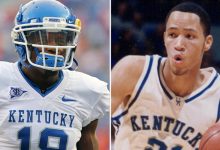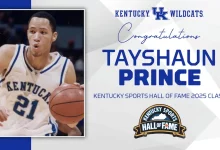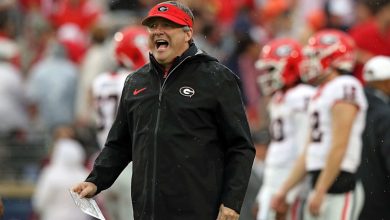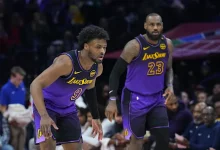Hugh Freeze discussed golf criticism and recruiting struggles on David Pollack’s podcast, emphasizing his avoidance of social media despite ongoing criticism of Auburn’s recruiting decline during his tenure.
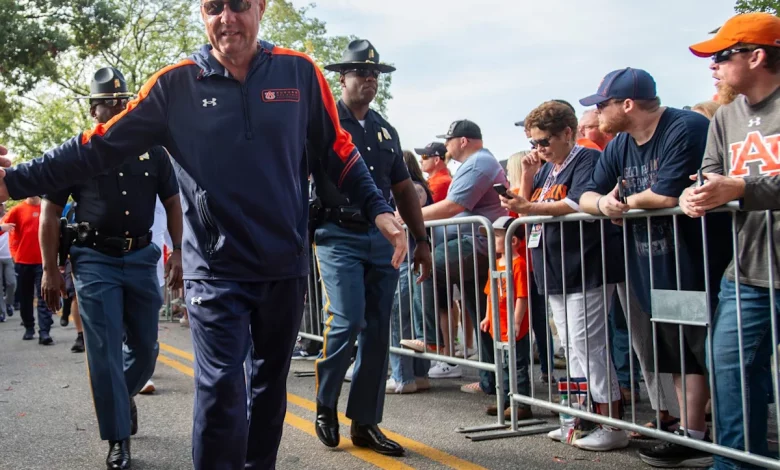
In the dynamic world of college football, head coaches are often scrutinized not only for their on-field performance but also for their off-field decisions, public statements, and ability to navigate the complex landscape of recruiting and media. Hugh Freeze, Auburn’s head coach, has recently addressed these issues publicly, notably through his appearance on David Pollack’s podcast, where he discussed the criticism surrounding his golf game and the Tigers’ recruiting struggles. Freeze’s candidness about avoiding social media and his perspective on the recruiting slide provide insight into his leadership style, strategic priorities, and the challenges facing Auburn football amidst heightened scrutiny. This comprehensive exploration delves into Freeze’s comments, the context of Auburn’s recruiting situation, the role of social media in modern coaching, and the broader implications for the program’s future.
Hugh Freeze’s Approach to Media and Public Scrutiny
Hugh Freeze has built a reputation as a coach who prefers to focus on football and team development rather than engaging in the often-tumultuous world of social media. Throughout his tenure, Freeze has emphasized that he doesn’t get involved in social media, believing that it can distract from the core mission of developing players and winning games. This stance aligns with many coaches who see social media as a double-edged sword—useful for recruiting and branding but potentially distracting if not managed carefully.
Despite Freeze’s avoidance of social platforms, criticism has persisted, especially regarding Auburn’s recruiting performance. Critics argue that Auburn’s recruiting classes have not lived up to expectations, especially considering the program’s rich history and the resources invested in recruiting efforts. This perceived recruiting slide has drawn attention, with fans, analysts, and former players questioning the program’s ability to attract top talent under Freeze’s leadership.
During his appearance on David Pollack’s podcast, Freeze addressed these issues candidly. He acknowledged the challenges Auburn has faced in recruiting and explained his philosophy on social media, emphasizing that his focus remains on building the team and not on engaging in online disputes or debates. His approach reflects a desire to maintain a focused, disciplined environment, minimizing outside distractions that could hinder player development or team cohesion.
The Context of Auburn’s Recruiting Challenges
Auburn’s recruiting struggles are complex and multifaceted. Historically, Auburn has been a powerhouse in recruiting within the SEC, often competing with other top programs like Alabama, Georgia, LSU, and Florida. However, in recent years, several factors have contributed to a perceived slide:
Coaching Transitions: The departure of Gus Malzahn and the subsequent hiring of Hugh Freeze introduced a period of adjustment. Recruiting under a new staff often involves rebuilding relationships, re-establishing trust with high school coaches, and demonstrating a new vision. This transition can temporarily slow momentum.
National Perception and Brand Strength: Auburn’s national recruiting brand has taken some hits due to recent on-field performance and coaching changes. While Auburn remains a respected program, competing against the likes of Alabama and Georgia, which have enjoyed sustained success, is challenging.
SEC Competition: The SEC is arguably the most competitive conference, with every program investing heavily in recruiting and facilities. Auburn faces stiff competition for top recruits, especially in a landscape where some programs have more recent success or more prominent national profiles.
Off-Field Factors: External issues such as NCAA investigations, roster turnover, and the broader landscape of college football recruiting—including transfer portals and NIL—have also affected Auburn’s ability to land top-tier talent consistently.
Recruiting Strategy and Evaluation: Some critics argue that Auburn’s current recruiting strategy may need adjustment to better target elite prospects or to improve relationships with high school programs. Others suggest that the coaching staff might be prioritizing player development or character over raw recruiting rankings, which can be a strategic approach but may also slow the influx of top-tier recruits.
Despite these challenges, Freeze has emphasized that recruiting is a process that takes time. His focus has been on developing players, building a strong team culture, and improving the program’s overall competitiveness.
Hugh Freeze’s Philosophy on Social Media and Public Engagement
A core element of Freeze’s public stance is his aversion to social media. He has frequently stated that he prefers to avoid the noise and distractions that come with platforms like Twitter and Instagram. Freeze believes that social media can sometimes foster negativity, misinformation, or unnecessary drama, which can detract from the primary goal of building a successful team.
In his interview on David Pollack’s podcast, Freeze reiterated this philosophy, explaining that he dedicates his energy to coaching, recruiting, and player development rather than engaging in online debates or responding to criticism publicly. He views social media as a potential distraction that can create unnecessary controversy or miscommunication, especially for a high-profile program like Auburn.
This approach aligns with a coaching philosophy that values discipline, focus, and resilience. Freeze’s stance is that coaches should be leaders who set an example by maintaining professionalism and avoiding the pitfalls of online toxicity. By not engaging directly with critics on social media, Freeze aims to foster a culture of accountability and focus within the program.
The Impact of Social Media on Coaching and Recruiting
While Freeze chooses to stay off social media personally, he recognizes its importance as a recruiting tool and a means of branding for college programs. Many successful coaches and programs leverage social media to showcase facilities, highlight player achievements, and connect with recruits and fans.
However, the platform’s negative aspects—such as cyberbullying, false information, and divisive commentary—can also hamper a program’s reputation or create unnecessary distractions. Coaches who engage actively on social media often walk a tightrope, balancing transparency and branding with the risk of controversy.
For Auburn, a program with passionate fans and high expectations, social media can be both an asset and a liability. Freeze’s decision to avoid social media reflects a desire to control the narrative internally and prevent external negativity from influencing team dynamics.
The Recruiting Slide and Its Broader Implications
Auburn’s recruiting slide has been a point of concern for fans and analysts alike. It’s important to recognize that recruiting rankings and perceived talent levels are only part of the equation; player development, team culture, and coaching also play crucial roles in success.
Nevertheless, recruiting remains the lifeblood of college football programs. A sustained decline in top-tier prospects can impact roster quality, depth, and overall competitiveness. For Auburn, the challenge is to reverse this trend by:
Strengthening Relationships: Rebuilding trust and securing commitments from highly-rated recruits.
Enhancing Facilities and Resources: Demonstrating ongoing investment in the program to attract top talent.
Improving Visibility and Branding: Showcasing the program’s strengths through innovative marketing, even if Freeze stays off social media.
Focusing on Player Development: Ensuring that recruits see a clear pathway to success and NFL opportunities.
The recruiting slide also affects team morale and fan confidence, making it crucial for Freeze and his staff to develop a compelling vision for the program’s future.
The Broader Context of College Football Recruiting and Leadership
In modern college football, recruiting is a highly competitive, multi-faceted enterprise. The rise of NIL deals, transfer portals, and social media has transformed how programs attract and retain talent. Coaches must be strategic, adaptable, and resilient in navigating this landscape.
Freeze’s approach emphasizes internal focus—developing players, maintaining discipline, and building a culture that appeals to prospects beyond just rankings. His avoidance of social media is a conscious choice rooted in his leadership philosophy, prioritizing team cohesion and internal growth over external validation.
This approach has both strengths and weaknesses. While it can foster a disciplined environment, it may also limit exposure and recruiting reach if not supplemented with other marketing strategies. Therefore, Auburn’s success in reversing its recruiting slide will depend on a combination of internal development, strategic outreach, and leveraging alternative marketing channels.
Hugh Freeze’s candid discussion on David Pollack’s podcast about golf criticism, recruiting challenges, and his social media stance sheds light on his leadership style and the current state of Auburn football. His emphasis on focusing on football rather than engaging in online disputes reflects a disciplined, internally driven approach to coaching. Despite the recruiting slide, Freeze remains committed to rebuilding the program through player development, relationship-building, and strategic vision. While social media offers opportunities for branding and recruiting, Freeze’s decision to remain detached underscores his belief that sustained success comes from discipline, focus, and internal culture. Moving forward, Auburn’s ability to improve its recruiting standing and compete at the highest level will depend on how well Freeze and his staff can adapt to the evolving landscape, maintain focus, and foster a winning environment rooted in resilience and discipline.

